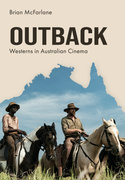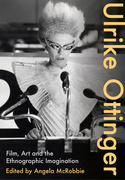Swedish Cops (Book)
From Sjöwall and Wahlöö to Stieg Larsson
Michael Tapper considers Swedish culture and ideas from the period 1965 to 2012 as expressed in detective fiction and film in the tradition of Maj Sjöwall and Per Wahlöö. Believing the Swedish police narrative tradition to be part and parcel of the European history of ideas and culture, Tapper argues that, from being feared and despised, the police emerged as heroes and part of the modern social project of the welfare state after World War II.
Establishing themselves artistically and commercially in the forefront of the genre, Sjöwall and Wahlöö constructed a model for using the police novel as an instrument for ideological criticism of the social democratic government and its welfare state project. With varying political affiliations, their model has been adapted by authors such as Leif G. W. Persson, Jan Guillou, Henning Mankell, Håkan Nesser, Anders Roslund and Börge Hellström and Stieg Larsson, and in film series such as Beck and Wallander. The first book of its kind about Swedish crime fiction, Swedish Cops is just as thrilling as the novels and films it analyses.
Edition
Michael Tapper considers Swedish culture and ideas from the period 1965 to 2012 as expressed in detective fiction and film in the tradition of Maj Sjowall and Per Wahloo. Believing the Swedish police narrative tradition to be part and parcel of the European history of ideas and culture, Tapper argues that, from being feared and despised, the police emerged as heroes and part of the modern social project of the welfare state after World War II.
Establishing themselves artistically and commercially in the forefront of the genre, Sjowall and Wahloo constructed a model for using the police novel as an instrument for ideological criticism of the social democratic government and its welfare state project. With varying political affiliations, their model has been adapted by authors such as Leif G. W. Persson, Jan Guillou, Henning Mankell, Hakan Nesser, Anders Roslund and Borge Hellstrom and Stieg Larsson, and in film series such as Beck and Wallander. The first book of its kind about Swedish crime fiction, Swedish Cops is just as thrilling as the novels and films it analyses.
Michael Tapper teaches film at Lund University. He has been a contributor to the Swedish National Encyclopaedia since 1989 and has served as film critic at the daily Sydsvenska Dagbladet in Malmö, Sweden, since 1999.
Introduction
Chapter 1 – The Crime Genre
Origins
Crime and the Law
Chapter 2 – Enter the Police
A Genre is Born
The Police and the Welfare State
Backlash
Dirty Harry
Crime and Civilization
Crime Dystopia: The Psychopath and the Serial Killer
Chapter 3 – Crime Scene: Sweden
A Beginning
Gemeinschaft and Gesellschaft and the Nation
Crime and Nationality
The Young Savages of the Asphalt Jungles
The Hoodlum Film
The Politics of Crime
From Punishment to Reform and Back Again
Moral Panics and Crime Journalism
Print the Faction!
Chapter 4 – The 1960s and 1970s: Sjöwall and Wahlöö
Liberal-Conservative Criticism of the Welfare State
Criticism from within the Labour Movement
New Left Criticism of the Welfare State
Eco-Humanist or Green Criticism of the Welfare State
Per Wahlöö and Maj Sjöwall before Sjöwall and Wahlöö
Story of a Crime: Sjöwall and Wahlöö from Freud to Marx
The Film Adaptations
Chapter 5 – The 1980s: Leif G.W. Persson and Jan Guillou
Leif G.W. Persson
Jan Guillou
Chapter 6 – The 1990s: Henning Mankell and Håkan Nesser
Henning Mankell
Håkan Nesser and the Eurocop from Neverland
Chapter 7 – Millennium Cops
Crime and punishment in the Age of War on Terror
'Europudding' Police
Son of Dirty Harry: Beck and the Iconic Rise of Gunvald Larsson
Roslund and Hellström
Steig Larsson
Leif G.W. Persson: Downfall of the Welfare State
Chapter 8 – Into the Twilight
Cops and the Gemeinschaft/Gesellschaft Dichotomy
The Vigilante Cop and Right-wing Extremism
The Vigilante Cop and Fascism
The Challenge of Evil



















